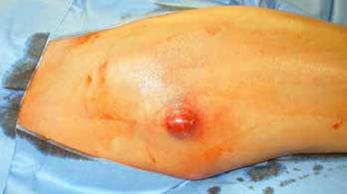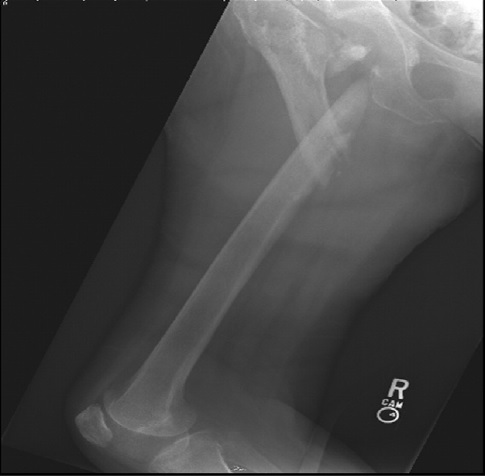CASE VIGNETTE – MAY 2018
Who Fractured My Femur?
My heart went out to this 78 year old lady. She had undergone a total hip replacement about six years previously. It was never much good from the start. She was hospitalised for seven days in the public sector in Queensland and on the day of her discharge from hospital, the wound was still weeping copiously. She was visited on a second daily basis by a community nurse and wound dressings were applied for almost four weeks.

READ MORE
She awoke one morning just after 3:00am. The wound had burst open, her bed was filled with creamy pus and the pain was excruciating. She had suffered with a post-operative infection around the hip replacement and the abscess had burst.
Over the next 18 months, she was subjected to no fewer than seven operations. The first six of those operations were directed at debriding the infected tissue, lavaging the joint, using antibiotic-laden acrylic cement beads as spacers, and even having the joint continuously flushed with a detergent-containing solution.
The seventh operation was to remove the hip replacement implants themselves. It was during the course of this seventh operation that her thigh bone was fractured.

She thought that things couldn’t get much worse. Obviously, they did. Not only was she left without a hip joint and with a large gaping wound in her buttock, but now she had a thigh bone that was broken, unstable and painful. Whilst uncommon, unfortunately this sequence of events can occur. There has been no malicious intent, no true negligence and in all probability, no chance for a claim.
The consenting process to which she was subjected was generic in nature. It did not mention specifically the femoral fracture which occurred during that seventh operation. The real question however is “Even if it had been mentioned, would she have refused the seventh operation?”
In all reality, she probably would not have refused it. She had few other options. She relied upon her Orthopaedic Surgeon to be as careful as possible. Despite maximal care, these complications sometimes occur.
There is no real solution to this conundrum. The sequence however should have a sobering effect upon all of us. Any type of orthopaedic surgery is serious, risks exist and complications can occur.
I recall when I was much younger that one of my senior mentors gave me some advice. He said that “All orthopaedic conditions should be managed without an operation – unless a true indication for an operation exists”. Sage advice indeed!

